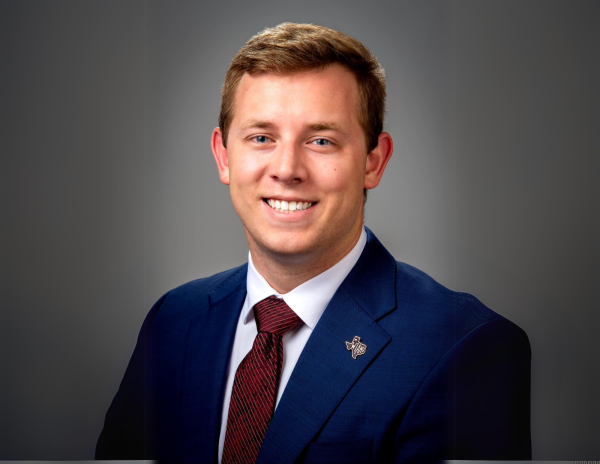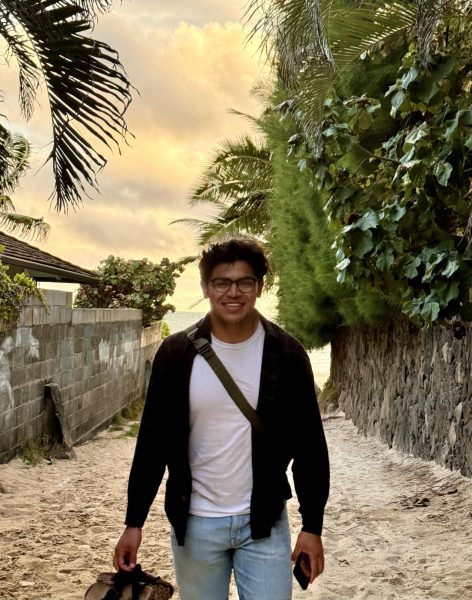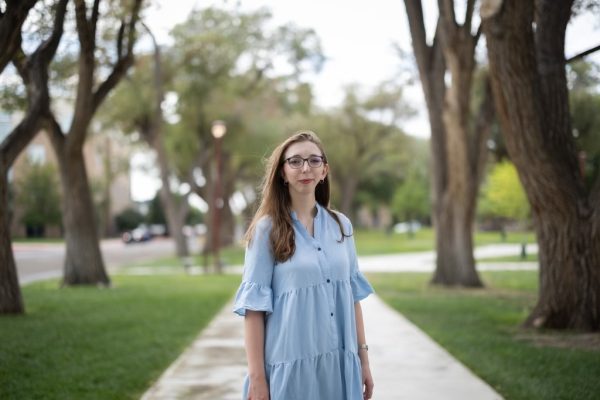Behind the major with Katsina Cardenas: Respecting the land
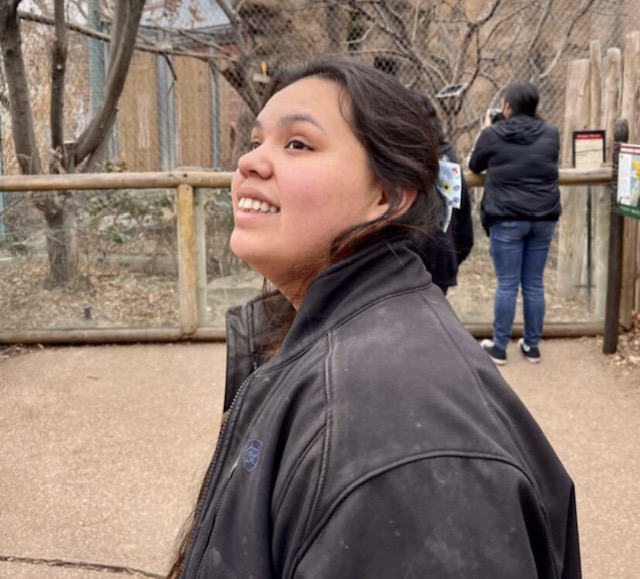
Katsina Cardenas is a sophomore environmental engineering major and geology minor at West Texas A&M University. Cardenas was inspired to pursue a career in environmental engineering and protection because she has always had a love for the outdoors.
Cardenas grew up on the Wind River Indian Reservation in Wyoming, the seventh largest reservation in the country. Growing up on a reservation gave her the unique perspective that comes from living in close alignment with the natural environment.
She described how during Arapaho New Year’s, the men of the tribe fast for three days without food or water. During this time, the tribe camps outside without any electronics and performs dancing and rituals.
“You get away from real life for a little while,” Cardenas said. “I always just liked being outside generally when I was growing up but having to do it for something every year was cool.”
Cardenas first became interested in pursuing an education in environmental engineering in high school when she went to a conference put on by the American Indian Science and Engineering Society (AISES).
“I got to meet a bunch of Native Americans who were in the sciences,” Cardenas said. “It was very much like, ‘You can be one too, you can do it too.’”
Pursuing a college education is not the norm on the reservation, so attending the AISES conference revealed a whole new set of options for her life trajectory.
When Cardenas was a junior in high school, her biology teacher organized a school trip to Costa Rica so students could experience the natural environment there. She was amazed by the beauty of the environment.
“In Costa Rica, they have the ‘Pura Vida,’ which means ‘pure life,’” Cardenas said. “That’s their standard of living. They’re so environmentally friendly that toilet paper doesn’t go down the toilet. It goes in the trash can because they can recycle it.”
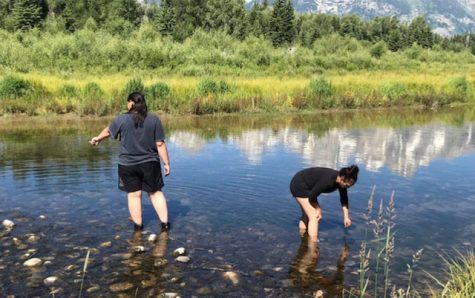
The summer after her junior year of high school, Cardenas participated in a three-month paid program with Montana Conservation Corps and got the opportunity to work in Grand Teton National Park and Death Valley National Park. As part of the program, she did trail maintenance, special projects such as building benches and stone steps for the parks and explored the natural environments.
Cardenas also met people working at the national parks who inspired her to get her college degree and return to help lead further conservation efforts.
“It made me want to work in a national park because we met the three people of color who work there,” Cardenas said. “They were like, ‘If you guys want to see more diversity in the park, go out there and get a college degree then come back.’ That’s my goal. I really want to do it because I just like the national parks.”
One principle that was emphasized during her time working in the national parks was “Leave No Trace,” or making it seem like you were never in the natural environment. It means protecting nature and interacting with it sustainably, as well as respecting wildlife.
“It’s how my mom taught me, like, ‘This is the land the Creator gave for you, so you need to respect it,’” Cardenas said. “It can give you food, it can give you shelter, but you need to respect it by not destroying it.”





